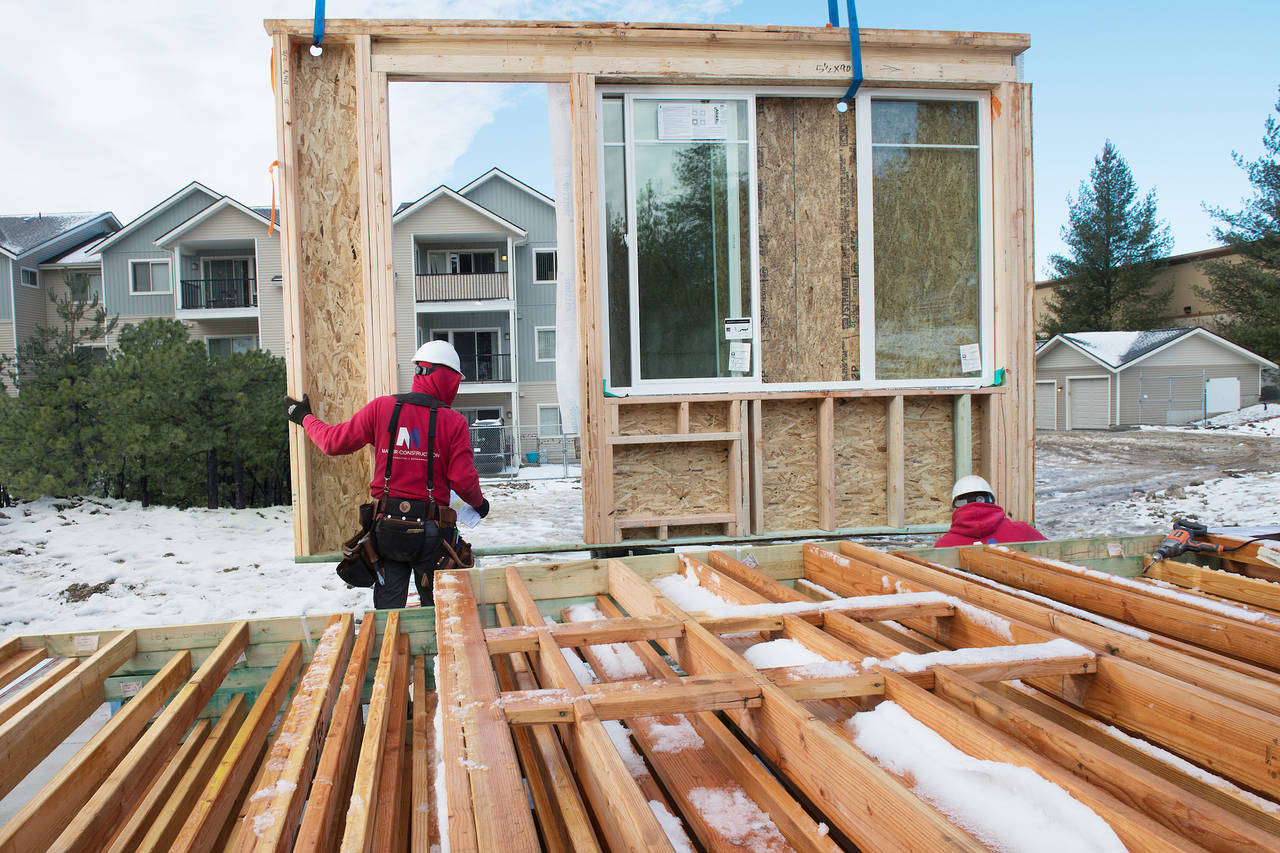
Over the last decade, the rise of online, two party marketplaces has completely reshuffled numerous economic sectors. Hospitality, leisure, transportation… By positioning themselves between an owner or service provider on one side, and the consumer on the other, Booking, Airbnb and Uber have disrupted both the way markets work and where value lies. The success of market places for businesses such as Alibaba in China, and platforms that connect freelancers with clients, such as UpWork, go to show that the entire economy and not just consumer relations is being transformed. This development model favors outsourcing, often through independent entrepreneurship. “Uberization” is now a buzzword to refer to transformations that are related to this new alternative to the old industrial model.
The construction industry is no exception. Via platforms designed for the general public such as Craigslist or Ebay, activities such as repair and do-it-yourself jobs done by micro businesses and private citizens were the first to feel the crunch. But today in France alone over 150 online platforms are dedicated to the construction industry. They allow smaller businesses to obtain new clients more easily by coordinating projects, as is the case with Matos; purchasing or renting equipment on “Equipment à partager” (tr. Equipment for Share) or Ibat; and even by outsourcing administrative tasks. Little by little it has penetrated every sector of the building industry. The platform Guru pulls together independent enterprises and offers over 15,000 options for architectural design. In France, 1,500 professionals have already created profiles on Archidvisor. Outside of France, the Dutch platform Archello caters to architects and designers who want to showcase their work, the Swiss site Architonic inspires interior architects, and the American Architizer connects 335,000 architects and 17,000 manufacturers.
By promising to optimize connections in a fragmented market these platforms are effectively positioning themselves as key players when it comes to the construction industry’s modernization and digital transformation. In France alone there are over 564,000 business in the building sector, and 95% of them employ fewer than 10 people, representing 37% of the workforce. The outsourcing portion of activities is already at an advanced stage, much like in the entrepreneurial sector, where 2 out of 3 businesses have no permanent staff. Employment in the building industry is governed by very specific rules and practices, such as temp work and project-specific contracts. Recently appropriated technologies such as digital sensors, virtual and augmented reality, or even BIM (Building Information Modeling) have accelerated collaboration between different players, developing new partnerships and more dispersed value chains.
Yet “platforming” and “uberizing” are not the only possible scenarios in the realm of digital transformations. Three projects can attest to the powerful role of digital tools in transforming the industry’s value chains, and show that the future of work in the building sector has yet to be written.
The 7 24 Pro Eure cooperative : a collective response to the “uberization” of artisans
So, how is it possible to maintain relationships with clients in the midst of platforms that connect artisans and project managers? That is precisely the question that motivated 30 some plumbers in the Eure region to come together into a coop that offers a 24/7 emergency service. Putting themselves behind a single phone number, they offer everyone access to a plumber at any time in less than two hours.
One platform, MesDéppaneurs (“My Technicians”) already counts more that 700 artisans. Online service maintenance contracts linked to water, electricity and heating are also on the rise. By positioning themselves as alternatives to digital platforms but also to all-in-one contracts, this coop allows artisans to share daily costs associated with their services while guaranteeing a fair price for both artisan and the client, and with no investor overhead. This model has become very attractive to many actors in the building sector: the “Confederation of Artisanship and Small Businesses in the Buiding Sector” (Capeb) has launched its own platform “Batdevis” (“Buildestimate”) as a means to help smaller actors who want to remain independent maintain their business’ autonomy.
A reverse from outsourcing and post-personnel: Katerra, or vertical integration through digitalization
Beyond the aspect of shared values, still other projects are fundamentally questioning the idea that digital platforms are the only response to the construction industry’s specific needs for optimization and coordination. Much to the contrary, some businesses are betting on a “fullstack” convergence, to create economies of scale but also to have full control over the value chain – from architects to assemblers to engineers. “Here is a sector where every building is constructed as if it were a one-of-a-kind project. If we built electronics like that, with all of the challenges at every phase, and virtually no investment in R&D, an iphone would cost each consumer 270,000 dollars.” That was Fritz Volff’s perspective during a conference at Harvard on the 13 April 2018, and what motivated him and his associate Michael Marks to found Katerra. Far from attempting to “uberize” the industry, Katerra positioned itself as a general contractor. Its goal is to incorporate every step of the construction chain, from concept, to the production and distribution of wood, factory assembly modules, up to the final assembly phase. Katerra has over 1,300 employees, with orders that are already worth more than 1.3 billion dollars.
Digital is at the heart of this company’s business model, founded in Menlo Park in Silicon Valley. The strategy: apply the tech world’s methods, management styles and digital tools to become the “Telsa” of its industry. This strategy allows it to get ahead of its competition in light of their slower movement towards digitalization, and the fact that they are often blocked by the need to share resources with different players with varying skills and competency levels. Katerra can thus sidestep bottlenecks and other obstacles that appear along the value chain to reduce costs, optimize logistics (model: Ikea), and develop its capacity to invest in R&D. As the employer of over one hundred architects, Katerra can easily position itself as a heavy-weight in the field of architectural design.
The do-it-yourself, open source buiding site with WikiHouse: when ethic-hackers target individual houses
More than a work evolution, the WikiHouse foundation is looking towards an industrial revolution. In allying itself with the concept of free software and collaborative communities, it aims to radically alter construction’s value chain, by giving free access to immaterial resources (building plans, tutorials, etc.) and thus allowing local entities, including non-professionals, to create their own construction sites.
Firstly, it relies upon digital design, with an open source system that allows everyone to adapt plans to their own needs and budget. Next, it calls upon distributed manufacturing: builders can have necessary customized components manufactured in small quantities, and chose from whatever locally available materials can do the job. Finally building assembly follows a quick and simplified method. Wikihouse’s core objective is to accelerate the sector’s ecological transition, integrating technologies that reduce energy consumption and regulate building temperatures, while making it accessible to all to test its technics at very low costs.
